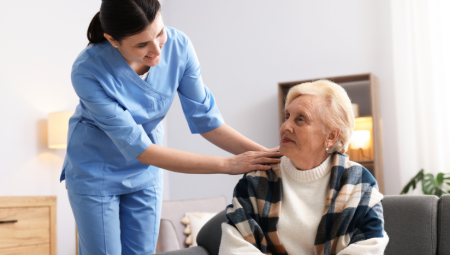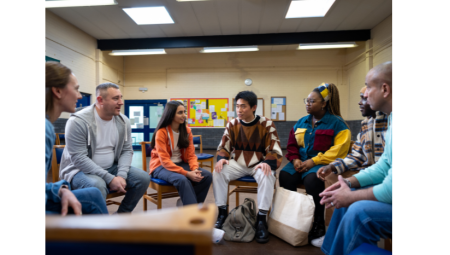Background
About 6.5 million people in the UK – around 10% of the population – are carers, supporting family or friends in an unpaid role. Health and social care rely on these carers to help and support people living with a range of conditions within the community, helping relieve the strain on services. Estimates of the value of this care range from £57-100 billion a year, with the value of unpaid care significantly outweighing that of formal care provided through health and social services. Carers assist patients in maintaining their independence and wellbeing and may assist with a range of tasks, including meal preparation, personal care, shopping, managing healthcare appointments and providing emotional support.
However, carers are patients within their own right and may require support to ensure their continued wellbeing, particularly as caring can impact on their mental and physical health. Various policies have emerged in recent years emphasizing the need to better identify and support carers. The Five Year Forward View highlights the “underappreciated contribution” of carers to both patients and the sustainability of NHS services. More recently, the NHS Long Term Plan reports that “carers are twice as likely to suffer from poor health compared to the general population” and encourages improved carer support. Meeting the needs of carers is essential to ensure their wellbeing and to enable them to provide care throughout the trajectory of the patient’s illness.
Occupational therapists contribute to this support and are well-placed to do so, often working closely and developing positive relationships with the friends and family of patients. This review, therefore, aimed to capture insights into the role occupational therapy is playing in supporting carers. The findings may help both members of the profession and carers themselves.
Project aims
Locally we shared the findings with:
- Council for Allied Health Professions Research (CAHPR) hub (including presenting at local meeting)
- Local occupational therapy peer support groups
- Local carer special interest groups e.g. Carers Matter Norfolk (e.g. provision of newsletter pieces etc.)
- Norfolk and Norwich University Hospital & University of East Anglia
Nationally we shared the findings via:
- Royal College of Occupational Therapists’ conference 2021 abstract (accepted)
- Publication of the review in the British Journal of Occupational Therapy
- Dissemination to national carers’ associations/charities including Carers UK and The Carer’s Trust
- Submission of a short piece for OTnews
- Dissemination to national CAHPR network
- And using social media
Project activities
This systematic review established:
- The extent to which occupational therapists are involved in interventions targeting adult carers within the UK as described within the research literature
- The quality of research evidence that has been produced relating to these interventions
- The nature and breadth of these interventions
- Information relating to the efficacy of these interventions reported within the literature
The review provides occupational therapists with evidence to inform practice and future research in order to improve care and support of carers.
This review has now been published.
Who was involved?
Principle Investigator
Morag Farquhar, University of East Anglia
Contact us
Morag Farquhar, M.Farquhar@uea.ac.uk





